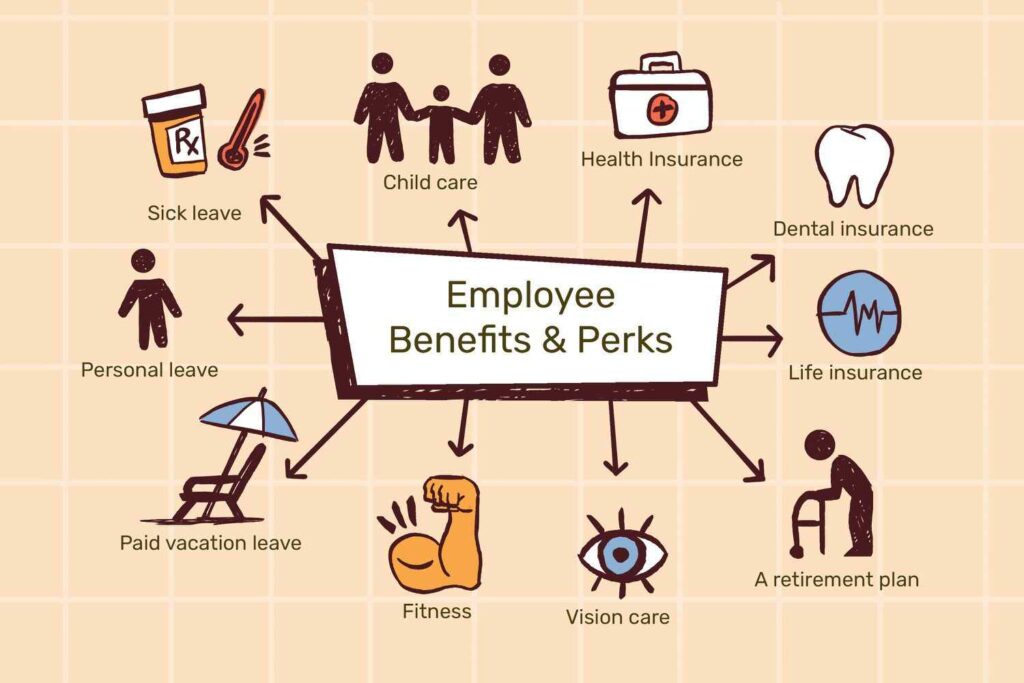Flexible Benefits Program is becoming increasingly popular among companies looking to provide their employees with a customized benefits package. These programs allow employees to choose from a variety of benefits, including health insurance, retirement plans, and wellness programs, to create a package that meets their unique needs. In this blog post, we will explore the benefits of flexible programs and how they can help both employees and employers.
Contents
What Are The Flexible Benefits Program?
Flexible Benefits Programs, also known as cafeteria plans or flexible spending accounts, are a type of employee benefits program that allows employees to choose the benefits that best suit their needs. These programs offer a variety of benefits, such as health insurance, dental insurance, vision care, life insurance, disability insurance, retirement plans, and wellness programs.
These programs are designed to give employees more control over their benefits and provide them with the opportunity to create a benefits package that suits their unique needs. This can help increase employee satisfaction and engagement, as well as attract and retain top talent.
What Include In The Flexible Benefits Program?

A flexible benefits program is a type of employee benefit plan that allows employees to choose from a menu of options to create a benefits package that best suits their individual needs. The specific options included in a flexible benefits program can vary depending on the employer and the needs of the employees, but here are some common benefits:
- Health Insurance: This is typically the most important benefit for employees, and a flexible benefits program may offer a range of health insurance options, such as HMOs, PPOs, or high-deductible plans.
- Dental and Vision Insurance: These benefits may be offered as separate options or included as part of a comprehensive health insurance plan.
- Retirement Plans: Employers may offer a 401(k) plan or other retirement savings options with different contribution levels.
- Life Insurance: Employers may offer group life insurance or allow employees to purchase individual life insurance policies through the program.
- Disability Insurance: This benefit can provide income protection if an employee becomes disabled and unable to work.
- Flexible Spending Accounts (FSAs): These accounts allow employees to set aside pre-tax dollars to pay for eligible healthcare expenses or dependent care expenses.
- Health Savings Accounts (HSAs): This is a tax-advantaged savings account that employees can use to pay for medical expenses.
- Employee Assistance Programs (EAPs): These programs can provide employees with counseling services, legal assistance, financial planning, and other types of support.
- Wellness Programs: Employers may offer wellness programs that encourage healthy behaviors and provide resources to support employee wellness.
The above list is not exhaustive, and a flexible benefits program may also include other benefits such as commuter benefits, tuition reimbursement, or pet insurance. The goal of a flexible benefits program is to offer a range of options that can be tailored to the unique needs of each employee.
Benefits Of Flexible Benefits Plan For Employers
A flexible benefits plan offers many benefits to employers. Here are some of the main advantages:
- Cost Control: With a flexible benefits plan, employers can set a budget for employee benefits and let employees choose from a menu of options that fit within that budget. This can help employers control their benefit costs while still offering competitive benefits to attract and retain employees.
- Employee Satisfaction: A flexible benefits plan can help improve employee satisfaction and morale by giving employees more control over their benefits. When employees have a say in the benefits they receive, they are more likely to feel valued and appreciated by their employer.
- Attract and Retain Talent: Offering a flexible benefits plan can help employers attract and retain top talent. Employees are increasingly looking for jobs that offer a work-life balance and benefits that fit their individual needs.
- Increased Productivity: When employees have access to benefits that help them manage their health, wellness, and financial needs, they are more likely to be healthy, motivated, and productive at work.
- Tax Benefits: Offering a flexible benefits plan can provide tax benefits to employers. Some benefits, such as health savings accounts (HSAs) and flexible spending accounts (FSAs), allow employees to contribute pre-tax dollars, which can reduce the employer’s payroll taxes.
- Compliance: A flexible benefits plan can help employers comply with various regulations, such as the Affordable Care Act (ACA). Employers can offer a variety of benefits that meet the minimum requirements of the ACA without having to offer a one-size-fits-all benefits plan.
In summary, a flexible benefits plan can provide many benefits to employers, including cost control, improved employee satisfaction, talent attraction and retention, increased productivity, tax benefits, and compliance with regulations.
Advantages Of Flexible Benefits Program For Employees

A flexible benefits program offers many advantages to employees. Here are some of the main benefits:
- Customization: With a flexible benefits program, employees have the ability to customize their benefits package to fit their unique needs. This means they can choose the benefits that are most important to them and their family, such as health insurance, dental insurance, and retirement savings plans.
- Greater Control: Employees have greater control over their benefits with a flexible benefits program. They can decide how much they want to spend on each benefit and adjust their benefits package as their needs change.
- Increased Satisfaction: Employees who have access to a flexible benefits program are typically more satisfied with their benefits package than those who do not. They feel that their employer is investing in their well-being and taking their individual needs into consideration.
- Better Health: A flexible benefits program can help employees maintain better health by offering benefits that promote wellness, such as gym memberships, wellness programs, and access to mental health services.
- Financial Security: Benefits such as retirement savings plans and life insurance can help employees achieve greater financial security, both in the short and long term.
- Tax Savings: Many benefits offered through a flexible benefits program, such as flexible spending accounts (FSAs) and health savings accounts (HSAs), offer tax savings. This means employees can save money on their taxes while also paying for important expenses like healthcare and dependent care.
- Talent Attraction: Employees are looking for employers who offer benefits that fit their individual needs, and a flexible benefits program can help employers stand out in a competitive job market.
In summary, a flexible benefits program offers many advantages to employees, including customization, greater control, increased satisfaction, better health, financial security, tax savings, and talent attraction.
Conclusion
In conclusion, a flexible benefits program can provide numerous benefits to both employers and employees. For employers, it can help control benefit costs, increase employee satisfaction, attract and retain talent, improve productivity, offer tax benefits, and comply with regulations. By offering a flexible benefits program, employers can provide a more comprehensive and personalized benefits package that meets the diverse needs of their workforce, while also creating a more engaged and loyal workforce.
Employee wellness programs are the key to improving employee motivation, productivity, and retention. At MantraCare, we have a team of health experts, counselors, and coaches who serve corporate employees with 10+ wellbeing programs including EAP, Employee Diabetes Reversal, Corporate MSK, Employee Fitness, Corporate Yoga, and Employee meditation.
